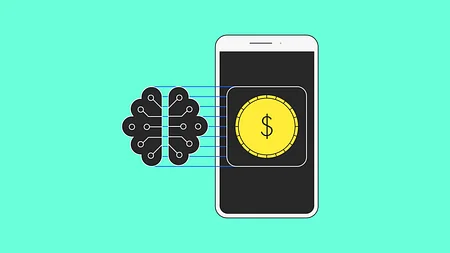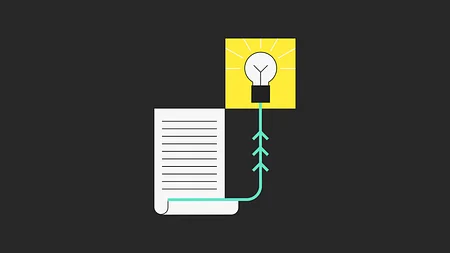Would you rather be a fintech Super App or a bank?

Every time I see a fintech announce they are applying for a charter, I wonder ‘do you really want to be a bank?’
This is taken from our Unfiltered newsletter. Subscribe now for a no BS, uncensored analysis of fintech news and hot topics delivered to your inbox each fortnight.
Being a bank means you get to lend and lending is a great way to make money. But being a bank makes it much harder to win at other fintech business models.
PayPal and Square are crushing every earnings season, and while they both have a charter (PayPal in Luxembourg and Square has an Industrial Loan Charter), their primary way of making money is not the same as banks. Where they started gives them a very different set of options to drive revenue.
Then you have companies like Monzo or N26 who went the consumer banking charter route but have taken longer to hit profitability. Getting a license is hard. Scaling with it is harder.
Getting a license is hard. Scaling with it is harder.
So being a Super App is the only sound strategy for consumer fintech, right? Well, no. Look at Nubank - 40 million customers, adding another 1 million customers per month and heading towards IPO at a potential $55 billion valuation. Nubank is crushing it too.
As the first wave of US neobanks head towards IPO, should they double down on lending or look towards the Super App strategy?
The neobank opportunity
Without branches and with fewer people, neobanks have a much lower operating cost. They often don't pay heavy marketing costs to get someone to switch direct deposit, so their entire customer acquisition cost (CAC) can be as low as $10 to $20.
In the US, if that customer is reasonably active and makes plenty of transactions in a given year, the neobank can break even on the interchange fees they receive from merchants alone. Interest rates in the US are low, meaning lending requires a good deal of scale.
In Europe, where interchange fees are capped, revenue is harder to come by for neobanks until they find another source of income. Interest rates in Europe are near zero, or in some cases negative, meaning lending requires a scale and low operating costs.
In markets like LATAM there's both more interchange and higher interest rates, so getting to a charter and lending business model quickly makes a ton of sense.
The neobank problem
If a neobank gets a charter, they often have fewer deposits as a base than the megabanks do at the outset. The newly-arrived bank has a higher cost of funds than their big rivals, so it may not drive profit from their lending activity as quickly. We've seen this in Europe, with Monzo (nearly 6 million consumers and an average deposit of ~$500) and N26 struggling for profitability.
Also in Europe - Starling has driven closer to profitability with 2 million consumers and 200,000 small business customers. Starling got into the SMB market early and was a significant lending provider during the pandemic. So profit is possible in the banking business model - it just takes a long time and requires banks to go wide and drive towards the right kind of scale for that model.
As a result, the Super Apps often solve more of a problem for their customers than a bank typically would. Most banks (even neobanks) don’t tend to go deeper into adjacent merchant problems like inventory management, advertising or payroll. Some of the neobanks are going there but their starting point is still the bank paradigm.
Super Apps often solve more of a problem for their customers than a bank typically would.
The Super App opportunity
With more data comes the ability to identify user behaviour and solve for more of the customer's financial lives. With a digital operating model, the Super Apps have a low cost of acquisition and more sources of revenue than the chartered banks. The Super Apps also don't have the same regulatory and tech debt overhead as the incumbent banks. Once you become a bank, the regulatory scrutiny goes up several notches.
These Super Apps often have all the features you'd expect in a bank account, like direct deposit or bill pay. In effect, they're better than a bank and reduce banks to paycheque motels for many consumers. Some consumers even consider their Super App their primary bank account.
The Super App problem
Regulatory loopholes don't last forever. The banks are moaning about the ‘lack of a level playing field’ and lobbying hard to see that change. If Super Apps look like banks, act like banks (and in many cases can do more), shouldn't they be regulated similarly? The Super Apps would argue they already are.
The significant difference is that the banks have capital requirements and controls to prevent overly risky lending, ever since the global financial crisis. The Super Apps have been wise to not get as deep into the lending (and financial markets) game as the big banks, avoiding this kind of overhead. Technically both Square and PayPal have a charter and do some of their own lending, but they’re unlikely to head towards ‘universal bank’ status any time soon.
My unfiltered opinion
Every company wants some of that sweet fintech revenue.
If an app has all of the features of a bank (and more) with a better user experience, it has a real chance of winning market share and revenue. Banks will always struggle to ship at the same pace as non-banks. The banking business model works well at scale but comes with the overhead of actually being a bank.
The banks have an opportunity to become more horizontal and gain more scale. But they can’t both have a license and ship at the pace of the non-banks.
The Super Apps have a chance to bring together the merchant and consumer ecosystems with data and deliver more value to both sides.
The incumbent banks are unlikely to execute a Super App strategy effectively. But what about everyone else in the middle? What about the Robinhoods and Chimes of the world?
Pace of change is a power law in fintech. Those who ship fastest win customers and revenue. A license slows you down unless the game you’re playing is scaling deposits and lending. But if you’re playing that game, do it intentionally (or pick a market with great interest rates).
Does fintech get rebundled under the Super App or do consumers want many apps for many contexts? Is the future of the neobank being an also-ran to the Super Apps or competing with them?
I honestly have no idea.
But...
Not knowing is half the fun. 😁



